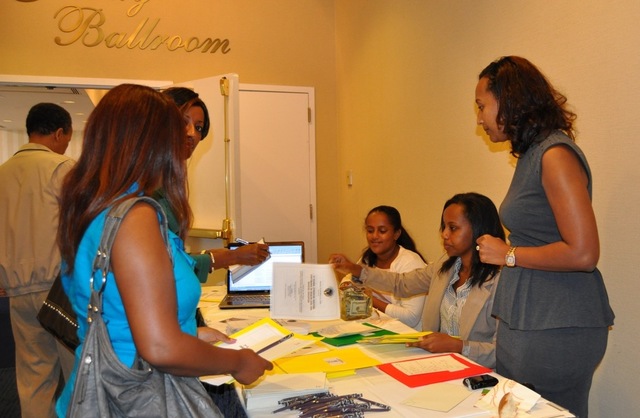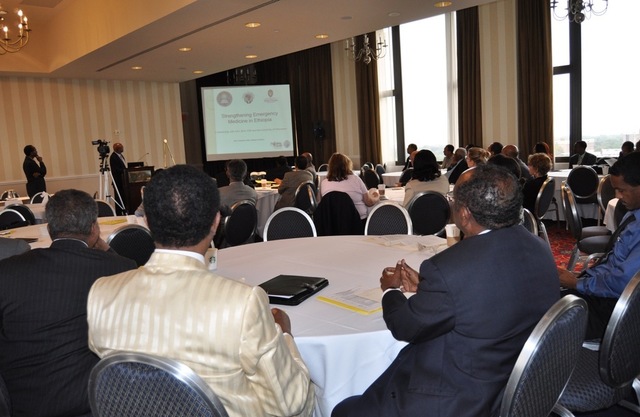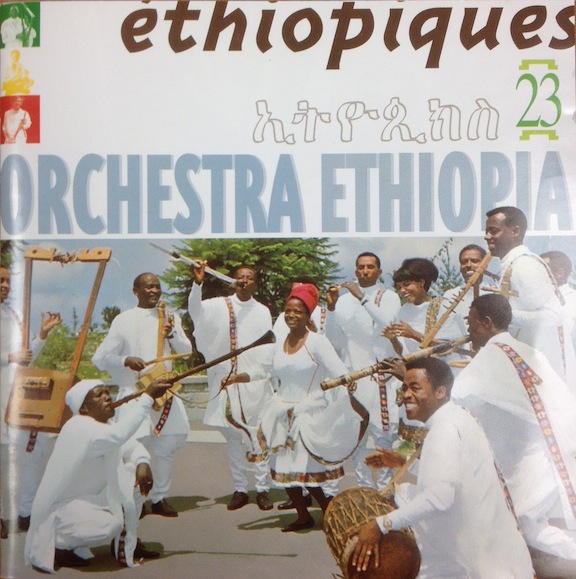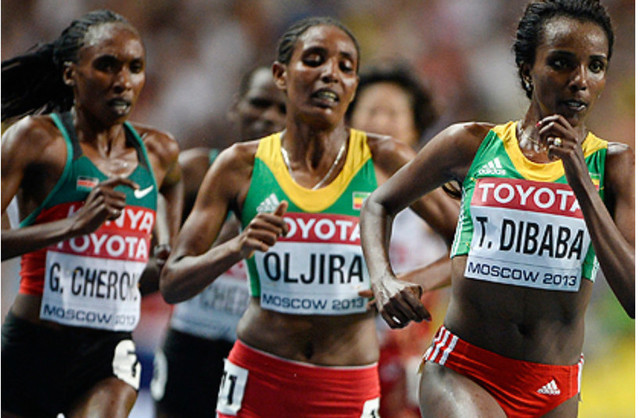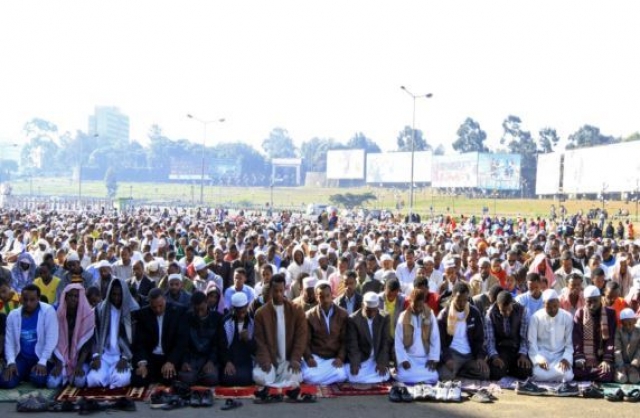VOA News
ADDIS ABABA (Reuters) — When global drinks giant Diageo bought a brewery in Ethiopia, it paid a premium for a stake in a barely tapped African market that in the 1980s had spectacularly failed to feed its own population.
Diageo paid $225 million for state-owned Meta Abo, joining a list of firms seeking a foothold in Africa’s second most populous nation that was once run by communists and now has an emerging middle class after a decade of double-digit growth.
“We paid a premium of course and that was a deliberate decision … We knew the value of what we were buying,” Francis Agbonlahor, Diageo’s managing director at Meta Abo, told Reuters in a capital that boasts smart highways and new office blocks.
Ethiopia is now sub-Saharan Africa’s fifth biggest economy, leap-frogging next door Kenya and wooing investors from Sweden, Britain and China, as other emerging markets lose some of their shine.
Few nations can better tell the story of “Africa Rising,” the narrative of a hopelessly mismanaged and violent continent now prized for strong growth and, in many cases, the kind of political stability scarcely imaginable a decade or two ago.
Yet like other African nations, Ethiopia must now work out how to maintain economic momentum as the U.S. Federal Reserve starts to turn off the taps of easy money that drove investors to more adventurous markets, and when China’s economy and those of other emerging powers start to shift down a gear.
That means another tricky transition for Ethiopia, which has until now relied on the state to run its economy, but which has seen growth rates slip to 7-8 percent, short of the level needed for its goal of middle income status by 2025.
“When you are starting from a very low base with a lot of donor support, it is easy enough to grow in a strong, robust way,” said Razia Khan, head of Africa research for Standard Chartered bank. “As the economy matures … it is going to become a lot more difficult.”
Dilemma
Opening up the economy, as many businesses at home and abroad want, could draw in new investment but may also loosen the controls that can be exerted by a government made up of ethnic and regional parties that has carefully managed development and kept a lid on rivalries.
That is the dilemma for Prime Minister Hailemariam Desalegn and his cabinet, who still work in the shadow of Meles Zenawi, the rebel-turned-statesman who ruled with an iron grip for two decades until he died last year. Caution remains the watchword.
“We are not ready now,” Foreign Affairs Minister Tedros Adhanom told Reuters when asked if Ethiopia could open up its mobile network or banks, prime targets for foreign investors.
Concerns about a deepening rich-poor divide and worries about changing the tried and tested policies of a charismatic leader, all weigh in to deter officials from a big shift.
But moving too slowly risks squandering investor enthusiasm and damaging the prospects of a nation once best known for “Red Terror” purges under communist rule in the 1970s and its 1980s famine. For now, at least, it has not deterred investors.
“I was in India recently and the thing that caught me by surprise [when talking] to foreign investors [was] the country that kept being mentioned was Ethiopia,” said Khan.
Diageo is not alone in seeing the potential. Heineken of Holland and France’s BGI Castel have snapped up breweries, which were among first state firms to be sold off.
The Ethiopian Investment Agency says Unilever and Nestle are sniffing around, and South Korea’s Samsung told Reuters it was exploring Ethiopia as a place to assemble its electronic goods. The two European companies did not comment.
Hennes & Mauritz (H&M), the world’s second biggest fashion retailer, has put in test orders as the nation seeks to boost textile exports to $1 billion a year by 2016 from $100 million last year.
H&M spokeswoman Marie Rosenlind said that, if the tests were successful, production could start this autumn.
Lending support
With manufacturing accounting for just 4 percent of gross domestic product, Ethiopia needs such investors to help reduce its reliance on exports of coffee, horticultural products and livestock that have driven growth until now. It also remains one of the world’s biggest recipients of aid.
“No other country that I’m aware of, aside from these resource-rich countries … can go to middle-income status with still 50 percent of GDP on agriculture,” Guang Z. Chen, the World Bank’s country director, told Reuters in a June interview.
China could lend support, though this time not in the usual form of donations that have helped African growth till now.
Chinese shoe exporter Huajian has announced plans to co-invest $2 billion in an industrial zone outside Addis Ababa to bolster its Ethiopian exports and create up to 100,000 jobs.
The African Development Bank says a switch by Beijing towards domestic consumption may boost manufacturing in African economies like Ethiopia, where labor is cheap and power is a third of the price in China.
Ethiopia is building a huge dam on the upper reaches of the Blue Nile, part of plans to export electricity in a few years.
Until now, the most visible signs of growth are in the capital, where building sites clad in wooden scaffolding have mushroomed. In the upmarket Bole Medhane Alem suburb, an emerging middle class is enjoying new luxuries.
A fast-food outlet sells burgers and fries for a just over $4, more than many Ethiopians earn for several days’ work. “We’re not coping with demand,” said one employee.
At a nearby coffee house, whose logo mimics Starbucks, hip youths in low-cut jeans sip Frappuccino’s and caramel macchiatos.
“The middle class is growing and is really increasing its purchasing power,” said 18-year-old Yohannes, sitting near a billboard advertising two new residential tower blocks carrying the slogan: “From shabby to chic. Witness the transformation.”
‘I won’t be one of them’
Yet for some, change is not being felt, including those in the capital’s tin-roofed slums.
“You can see it all around you, there are rich people. But I am not going to be one of them,” said Elias Zelalem, a teenager who earns $1.60 a day shining shoes — if business is brisk.
Ethiopia’s ambition is to achieve middle income status in 12 years’ time, defined by the World Bank as a per capita income of $1,430. In 2012, Ethiopia’s per capita income was $410.
Yet to do this, Ethiopia’s $43 billion economy needs to repeat the 10.7 percent average annual growth achieved in 2004 to 2011. Some question whether the state’s determination to meet this target is coming at the cost of private business.
“We have to overcome poverty. How fast we should do this, therein lies the difference [of opinion],” said Zafu Eyessus Zafu, whose United Insurance Company is a shareholder in a commercial bank. He wants financial services open to foreigners.
Two thirds of Ethiopia’s 8.5 percent growth in 2011/12 was due to public spending, the World Bank said. Half of spending needs are raised domestically, leaving little for private firms.
“If we need 50 million birr ($2.7 million) from the bank we may get 20-25 million,” said a truck importer who identified himself as Taye, wary of using his full name in a nation where the state has long kept a tight lid on dissent and criticism.
“For foreign currency it is impossible. We can apply to the bank and wait a month or more,” he added.
Proven policy
The credit crunch is deepened by a state-imposed requirement that each time a bank lends cash it must loan an additional 27 percent of the loan’s value to the government in the form of a low-interest Treasury bond to help fund development projects.
But the government shows no change of tack. Reining in the state would challenge the vision of Meles, whose portrait still hangs in government offices.
“There is no need to look for policy changes at this time,” deputy premier Muktar Kedir told Reuters earlier this year.
“We are of the mind that we have to fully implement the policy that has already proven itself successful,” he said.
A policy shift could open rifts along ethnic lines in the coalition made up of four main regional parties. There is little room for anyone who might challenge the status quo.
Without the force of personality or reputation of his predecessor, Hailemariam has shown no sign he has the political will or clout to veer from Meles’ path.
That may mean Ethiopia has to be content with slower growth and investors will need patience.
“Ethiopia is missing out in several respects,” said Standard Chartered’s Khan. “But there is this very cautious policy.”
—
Join the conversation on Twitter and Facebook.
